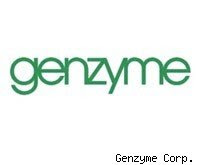FDA Approves Intuniv
 Shire plc, the global specialty biopharmaceutical company, today announced that it has received approval from the US Food and Drug Administration (FDA) for Intuniv (guanfacine) Extended Release Tablets for the treatment of Attention-Deficit/Hyperactivity Disorder (ADHD) in children and adolescents aged 6 to 17 years. Intuniv, a once-daily formulation of guanfacine, is the first selective alpha-2A adrenergic receptor agonist approved for the treatment of ADHD.
Shire plc, the global specialty biopharmaceutical company, today announced that it has received approval from the US Food and Drug Administration (FDA) for Intuniv (guanfacine) Extended Release Tablets for the treatment of Attention-Deficit/Hyperactivity Disorder (ADHD) in children and adolescents aged 6 to 17 years. Intuniv, a once-daily formulation of guanfacine, is the first selective alpha-2A adrenergic receptor agonist approved for the treatment of ADHD.Although the mechanism of action is unknown, Intuniv is thought to directly engage receptors found in the prefrontal cortex - an area of the brain that has been linked in preclinical research to ADHD. Stimulation of the postsynaptic alpha-2A receptors is thought to strengthen working memory, reduce susceptibility to distraction, improve attention regulation, improve behavioral inhibition, and enhance impulse control.
"Shire is proud to introduce Intuniv, providing clinicians, patients, and their families with a novel ADHD treatment option," said Mike Cola, President of Shire Specialty Pharmaceuticals. "This is a complex disorder in which patients may present with multiple symptoms and behaviors that can be disruptive. Intuniv expands the Shire ADHD portfolio with a nonscheduled medication, allowing clinicians to optimize their overall approach toward managing ADHD and may help provide symptom control for children and teens with ADHD who often have difficulty responding appropriately to everyday situations and challenges."
Once-daily Intuniv is expected to be available in US pharmacies in November and will come in four dosage strengths (1 mg, 2 mg, 3 mg, and 4 mg). Intuniv will be marketed in the United States by the existing Shire ADHD sales team of nearly 600 representatives. Intuniv is not a controlled substance and has no known potential for abuse or dependence.
"Everyday situations and challenges may be difficult for children and adolescents with ADHD as it is a disruptive disorder that includes symptoms and behaviors such as being easily distracted, always on the go, interrupting others, arguing with adults, or temper outbursts," said Frank A. Lopez, MD, a neurodevelopmental pediatrician in private practice at Children's Developmental Center in Winter Park, Florida. "In clinical trials, Intuniv, a selective alpha-2A receptor agonist, significantly reduced ADHD symptoms across a full day as measured by parents at 6 pm, 8 pm, and 6 am the next morning. This is important because children with ADHD require symptom control at home, school, and during after school activities."
The introduction of Intuniv is consistent with the strategy of Shire to expand and diversify its ADHD portfolio, which now consists of four ADHD treatment options of scheduled and nonscheduled medicines in the United States and two ADHD medicines available outside the United States.
Source : www.drugs.com
read more» Read more...














